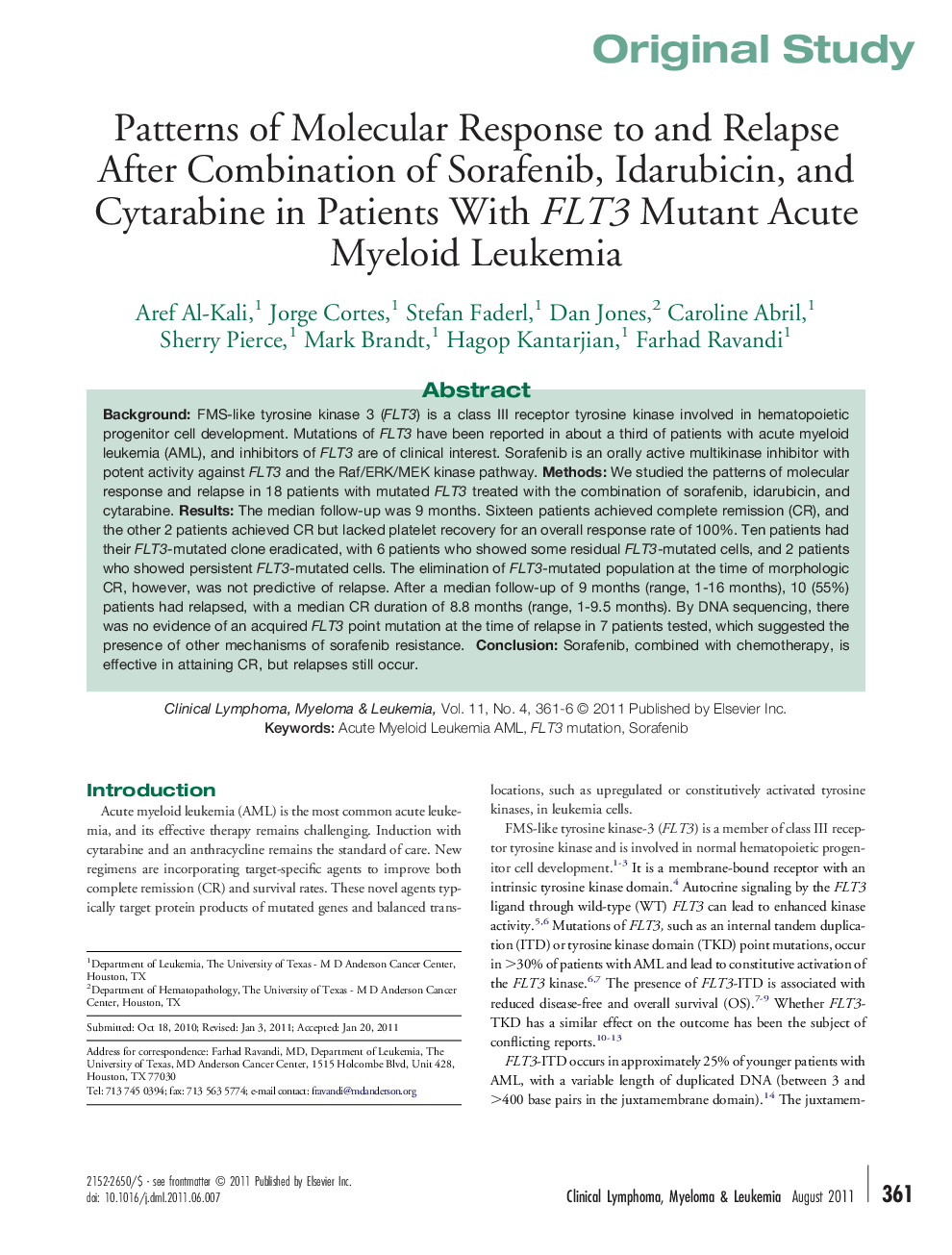| Article ID | Journal | Published Year | Pages | File Type |
|---|---|---|---|---|
| 2754566 | Clinical Lymphoma Myeloma and Leukemia | 2011 | 6 Pages |
BackgroundFMS-like tyrosine kinase 3 (FLT3) is a class III receptor tyrosine kinase involved in hematopoietic progenitor cell development. Mutations of FLT3 have been reported in about a third of patients with acute myeloid leukemia (AML), and inhibitors of FLT3 are of clinical interest. Sorafenib is an orally active multikinase inhibitor with potent activity against FLT3 and the Raf/ERK/MEK kinase pathway.MethodsWe studied the patterns of molecular response and relapse in 18 patients with mutated FLT3 treated with the combination of sorafenib, idarubicin, and cytarabine.ResultsThe median follow-up was 9 months. Sixteen patients achieved complete remission (CR), and the other 2 patients achieved CR but lacked platelet recovery for an overall response rate of 100%. Ten patients had their FLT3-mutated clone eradicated, with 6 patients who showed some residual FLT3-mutated cells, and 2 patients who showed persistent FLT3-mutated cells. The elimination of FLT3-mutated population at the time of morphologic CR, however, was not predictive of relapse. After a median follow-up of 9 months (range, 1-16 months), 10 (55%) patients had relapsed, with a median CR duration of 8.8 months (range, 1-9.5 months). By DNA sequencing, there was no evidence of an acquired FLT3 point mutation at the time of relapse in 7 patients tested, which suggested the presence of other mechanisms of sorafenib resistance.ConclusionSorafenib, combined with chemotherapy, is effective in attaining CR, but relapses still occur.
